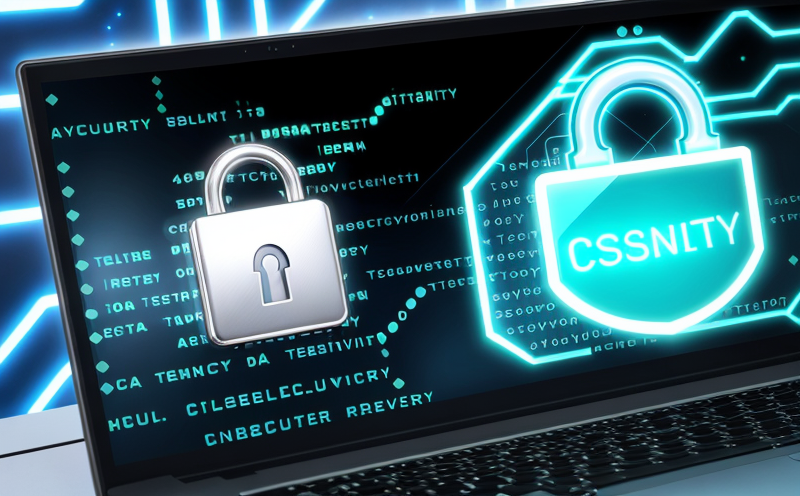UL 2900-3 Vulnerability Assessment in AI-Powered IoT Devices
The global landscape of smart home and IoT device testing is evolving rapidly with the integration of artificial intelligence (AI) into everyday devices. The UL 2900-3 standard sets a benchmark for assessing cybersecurity vulnerabilities specifically within AI-powered IoT devices. This service ensures that these cutting-edge products meet rigorous security requirements, safeguarding users from potential threats.
The assessment encompasses a comprehensive evaluation of the device's software and hardware components to identify and mitigate risks associated with unauthorized access, data breaches, and other malicious activities. By adhering to UL 2900-3, manufacturers can demonstrate compliance with regulatory standards and enhance consumer trust. This service is crucial for entities in the smart home sector, where security vulnerabilities could lead to significant financial losses or reputational damage.
The process involves multiple stages, starting from a deep dive into the device's architecture and software stack. Our team reviews all aspects of the system, including firmware updates, APIs, and communication protocols. This thorough examination is followed by penetration testing to simulate real-world attack scenarios. During this phase, we identify potential points of vulnerability that could be exploited by malicious actors.
Once identified, these vulnerabilities are documented in detail, along with recommended mitigations. Our report provides actionable insights for manufacturers, enabling them to implement effective security measures promptly. The service also includes a post-assessment review, ensuring the device remains secure against newly emerging threats. This continuous improvement cycle is essential for maintaining high standards of cybersecurity within AI-powered IoT devices.
The UL 2900-3 vulnerability assessment process leverages advanced tools and techniques to ensure accuracy and reliability. Our team comprises experts in both cybersecurity and AI, ensuring a holistic approach to the evaluation. By partnering with us, you gain access to state-of-the-art methodologies that align with international standards.
For quality managers, compliance officers, R&D engineers, and procurement professionals, this service offers invaluable support in navigating the complexities of smart home and IoT device testing. Our team's expertise ensures that your products meet stringent security requirements, enhancing their marketability and user trust.
Why It Matters
The importance of cybersecurity within AI-powered IoT devices cannot be overstated. As these devices become more integrated into our daily lives, the potential risks associated with data breaches and unauthorized access grow exponentially. The UL 2900-3 standard provides a structured approach to identifying and addressing these vulnerabilities.
- Prevents data theft and misuse of personal information
- Maintains user trust in smart home technology
- Avoids financial losses due to cyberattacks
- Ensures compliance with regulatory standards
- Safeguards against reputational damage from security breaches
- Increases product marketability and competitiveness
The consequences of neglecting cybersecurity can be severe. A single vulnerability could lead to widespread data leaks, compromising millions of users' personal information. Such incidents not only result in financial penalties but also erode consumer confidence, leading to a decline in sales and brand reputation.
By adhering to the UL 2900-3 standard, manufacturers can demonstrate their commitment to security, thereby gaining a competitive edge in the market. This service is particularly vital for entities that prioritize user safety and data privacy.
Applied Standards
| Standard | Description |
|---|---|
| UL 2900-3 | Rigorous framework for assessing cybersecurity vulnerabilities in AI-powered IoT devices. |
| ISO/IEC 27001 | International standard for information security management systems. |
| ENISA Guidelines | European Union Agency for Cybersecurity guidelines on securing IoT devices. |
| NIST SP 800-53 | United States National Institute of Standards and Technology framework for information security. |
The UL 2900-3 standard is complemented by other international standards such as ISO/IEC 27001, ENISA Guidelines, and NIST SP 800-53. These frameworks provide a comprehensive approach to cybersecurity, ensuring that all aspects of the device's security are addressed.
Quality and Reliability Assurance
- Penetration testing with simulated attacks
- Thorough review of firmware updates and APIs
- Continuous monitoring for emerging threats
- Documented findings and recommended mitigations
- Post-assessment reviews to ensure ongoing security
- Expertise in both cybersecurity and AI technologies
- Compliance with UL 2900-3 and other relevant standards
The quality assurance process is designed to be robust, ensuring that the assessed devices meet the highest standards of reliability and security. Our team's expertise in both fields guarantees a thorough evaluation, providing you with confidence in your product's cybersecurity measures.





